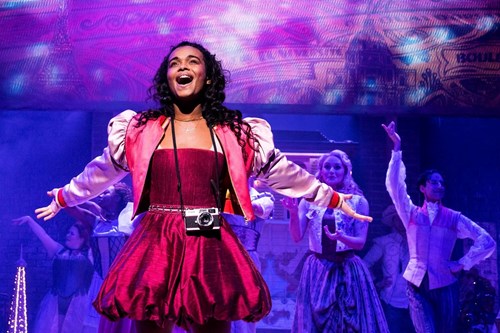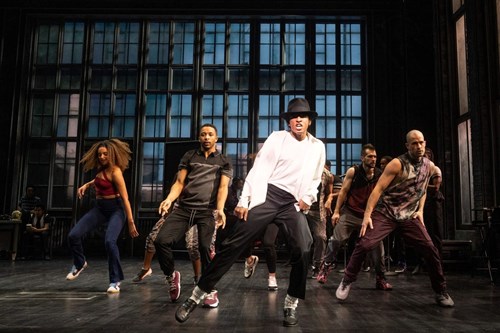Over the decades, Broadway has been graced by a multitude of talented Black performers, who have broken barriers and helped shape the landscape of American theatre. Although underrepresented for far too long, Black artists have been a presence on Broadway since the early 20th century. The journey has not been without struggle, as they faced racial prejudice, limited opportunities, and lack of representation. Yet, through resilience, they have brought unforgettable performances and groundbreaking shows to the Broadway stage.
As we commemorate Black History Month, it becomes even more significant to appreciate the contributions of these Black stars to Broadway. This is not just an acknowledgment of their talents, but also a celebration of Black excellence on Broadway, a tribute to their indelible impact, and a call to continue amplifying Black voices in the theatre industry.
In the annals of Broadway history, the early pioneers of Black excellence have left an unforgettable impact. One such pioneer was Bert Williams, a legendary vaudevillian who, in 1910, became the first Black man to star in the Ziegfeld Follies, a popular Broadway production. Despite facing outrageous racism and prejudice, Williams continued performing on Broadway until his untimely death in 1922.
Following in Williams’s footsteps, Charles Gilpin rose to stardom in 1920 with his powerful performance in Eugene O’Neill’s The Emperor Jones. Gilpin’s portrayal of Brutus Jones, a Pullman porter turned self-proclaimed emperor, was so captivating that he became the first Black actor to be named as “one of the 10 people in 1920 who had done the most for American theatre” by the Drama League of New York. His success proved to many that Black actors could carry lead roles, breaking stereotypes and expanding opportunities.
Another milestone in the early years was the 1935 production of Porgy and Bess. Written by George and Ira Gershwin, and DuBose Heyward, this opera showcased an entirely Black cast, a rarity for its time. These pioneers paved the way for future Black stars, their legacy a shining beacon of Black excellence on Broadway.
As we delve deeper into Broadway’s history, we find ourselves in its Golden Age, a period that saw the rise of several Black stars whose performances remain etched in the collective memory of theatre enthusiasts. Pearl Bailey, a singer and actress, was one of those luminaries. Her role as the matchmaker Dolly Levi in an all-Black production of Hello, Dolly! in 1968 earned her a Tony Award®.
Another star of this era was Diahann Carroll. In 1962, Carroll broke new ground as the first Black woman to win a Tony Award® for a leading role in a musical, for her performance in No Strings. Her success was a testament to the growing acceptance and recognition of Black talent on Broadway.
James Earl Jones also emerged during this era as one of the most respected and versatile actors. His deeply resonant voice and commanding presence graced the Broadway stage in numerous productions. Notably, his performance in The Great White Hope in 1969 won him a Tony Award®, further solidifying his status as a Broadway legend. In 2022, Broadway’s Cort Theatre was renamed the James Earl Jones Theatre in celebration of his illustrious career.

As the curtains rise on contemporary Broadway, a new generation of Black stars takes center stage, continuing the legacy of their predecessors while creating their own path. Among them is Lorna Courtney, who has been making waves with her extraordinary performance in & Juliet. Her portrayal of Juliet showcases not only her acting prowess but also her stunning vocal abilities, proving that she’s a force to be reckoned with on Broadway.
In the revival of the classic musical Chicago, Kimberly Marable shines as Velma Kelly. Although she is not the first Black actress to portray Velma, her performance breathes new life into this iconic role, showcasing her versatility and captivating stage presence.
Jelani Remy, a Broadway veteran, takes on a fresh challenge in Back to the Future: The Musical, where he steps into the shoes of Mayor Goldie Wilson. Remy’s energetic performance and captivating stage presence make him a standout in the production.
Meanwhile, in the Tony Award®-winning musical Hadestown, Lillias White, Phillip Boykin, and Jordan Fisher deliver stellar performances. Lillias White, a celebrated veteran of the stage, brings a powerful presence to the role of Hermes. Her incredible vocal prowess and commanding stage presence make her a standout in the cast. Phillip Boykin, known for his deep bass-baritone voice, portrays Hades with a complex blend of menace and pathos, adding depth to the character. Then there is Jordan Fisher, who plays Orpheus. Fisher, a rising star in both Broadway and Hollywood, brings a youthful energy and emotional vulnerability to the role, which has endeared him to audiences and critics alike.
Broadway newcomer Justin Cooley has been turning heads with his performance in Kimberly Akimbo. His portrayal of Seth showcases his impressive range and acting abilities, as well as gaining him a Tony Award® nomination.
Finally, Michael James Scott lights up the stage with his show-stealing performance as Genie in Aladdin. His comedic timing, energy, and powerful vocals make him an audience favorite, and the show itself a long running hit.
Broadway has been home to several shows that have prominently featured and celebrated Black excellence. The Lion King, one of the longest-running shows on Broadway, is a prime example. With its African-inspired music, costumes and choreography, the show has offered numerous opportunities to Black artists, both on and off-stage, to showcase their talent and creativity.
Hamilton, the revolutionary musical by Lin-Manuel Miranda, has also been a game-changer for the Broadway industry. Its diverse cast, including many Black actors in prominent roles, has breathed new life into American history and changed the face of Broadway. Hamilton has been particularly noteworthy for its casting of Black actors as founding fathers, challenging traditional casting norms.
MJ, the musical inspired by the life of pop icon Michael Jackson, offers an intimate look into the life of one of the most celebrated Black artists in history. The show, featuring a predominantly Black cast, is a testament to Jackson’s influence and the impact of Black artists on the music industry.

The musical SIX gives a modern and empowering twist to the story of Henry VIII’s wives, showcasing a diverse cast of women. The show’s casting of Black actresses in historical roles, its contemporary pop score, and its feminist narrative all contribute to inclusion and empowerment. The success of these shows underscores the appeal and relevance of diverse narratives and the necessity of continued Black representation on Broadway.
As we look to the future of Broadway, diversity initiatives become increasingly crucial. These initiatives not only push for increased representation of Black artists on stage but also advocate for their inclusion in all areas of the theatre industry, from production to direction and design. Programs like the Broadway Advocacy Coalition and the Black Theatre United are leading this charge, working to make Broadway a more inclusive and equitable space.
The talents and contributions of Black performers have indelibly shaped the face of Broadway, pushing boundaries, challenging norms, and broadening our understanding of what theatre can be. These artists have carried the torch from the early pioneers through the Golden Age and into the present, their influence resonating in every corner of the theatre industry. As we continue to celebrate Black History Month, we remember the legacy of these trailblazers, honor their achievements, and look forward to the future stars who will carry the torch of Black excellence on Broadway into the next generation. Their stories, their voices, and their talents are integral to the rich tapestry of Broadway’s history and its future.
One of the most impactful ways to support Black artists is by choosing to see their performances, investing in their stories, and applauding their talents. When we fill the seats, we send a powerful message of endorsement not just to the artists, but also to the industry.
Broadway Inbound is here to make your Broadway experience easier and more affordable. With our group discounts, you can gather your friends, family, or colleagues and make a night of it. Not only will you enjoy a memorable theatrical experience, but you’ll also be supporting the diversity and vibrancy that makes Broadway so special. In celebrating Black History Month, let’s not just talk about Black excellence on Broadway; let’s show up for it, cheer for it, and ensure its bright future.









